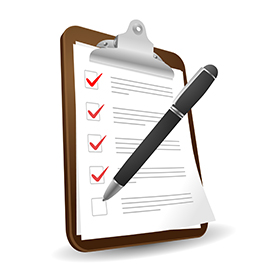- Community & News
- Conditions & Care
- Orthopedics
- Patient Stories
- Service Line
- Treatments
Signs and Symptoms of Hypoglycemia

Have you ever waited too long between meals to the point where you no longer feel like yourself? If you suffer from diabetes, you may be experiencing hypoglycemia, or low blood sugar.
Tammy Cost, a nurse practitioner at Good Samaritan Hospital explains signs and symptoms of hypoglycemia, as well as treatment options.
- Related: Do I Need Diabetes Education?
Hypoglycemia: Am I at Risk?
Hypoglycemia occurs when your blood sugar drops below 70mg/dl. When blood sugar drops to this level, it can be harmful to your health. Individuals who are on certain diabetes medications, including insulin and sulfonylureas, are at a higher risk for hypoglycemia.
Hypoglycemia: Common Symptoms
"There are several symptoms, however, Everyone is different,” Tammy explains. “You might start to feel anxious, have an increased heartbeat, or an inability to sit still.”
Additional symptoms include:
- Double vision or blurry vision
- Feeling cranky or acting aggressive
- Headache
- Hunger
- Shaking or trembling
- Sweating
Hypoglycemia: Treatment Methods
If you think you're experiencing low blood sugar, it's recommended that you test your sugar. If you're reading is below 70mg/dl, consume 15 grams of carbohydrates, wait 15 minutes, and then retest your blood sugar.
Common items with 15 grams of carbs include:
- 4oz. of juice
- Four to five hard candies
- 6oz. (half a can) of regular soda or pop
- Packet of graham crackers
If you treat your hypoglycemia, retest, and still have a level below 70mg/dl, retreat again with an additional 15 grams of carbs, wait an additional 15 minutes, and retest.
“We recommend treating and testing twice,” Tammy says. “If glucose continues to remain low after two treatments, or if you're not able to treat yourself or your family member, call 911."
Once your level drops to 40mg/dl or below, you can become completely incapacitated, or experience diabetic shock. "This is a medical emergency and requires emergency medical care, i.e. 911," Tammy explains.
When it comes to protecting yourself from hypoglycemia, you’re your best ally. “Be aware of your body, and become your best defense,” Tammy says.
Related Articles
- Conditions & Care
- Pediatrics
- Primary Care
- Service Line
- Treatments
- Conditions & Care
- Diabetes
- Disease & Symptom Information
- Patient Stories
- Service Line